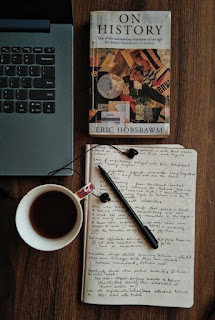Featured
- Get link
- X
- Other Apps
Stigma and Elitism in the History Major
If there’s one thing that history majors face a lot, its stigma. When I tell people that I am majoring in history, I get an abundance of wrinkled noses, laughs, and rude comments. I don’t complain, there are others who have it abundantly worse than I do (re: gender studies). But why is this? Why is there this notion that history as a field is unimportant, or that even the study of it is irrelevant to our time?
At first, I used to attribute this to the STEM fad. “People are so obsessed with technology,” I thought; it’s no wonder that everyone wants to enter that field. Everyone wants to be the next Steve Jobs. Over time, I discovered that things weren’t as simple as they seemed.
For the longest time in the West, a university education meant the liberal arts: language, rhetoric, philosophy, history, religion, among others. Although the definition of what a well rounded “liberal arts” education was evolved greatly over the centuries, it always centered on the humanities. Of course, for the longest time, a university education was something that was for the most part only available to wealthy men. These were the men who would not have to learn a trade to make a living for themselves; they had the ability to spend their time debating philosophy or studying the rhetoric of the Stoics. The word “liberal” in liberal arts refers precisely to this, to someone who has the time and freedom (from the Latin word liber, meaning free).
While some STEM fields were studied (such as geometry or astronomy), these too were perceived more as something to sharpen the mind with, rather than as something to use in a job. It was only until the 19th century that sciences like botany or biology began to be incorporated into many universities, though not without some difficulty. I can imagine that some of the wealthy young men in these universities probably asked themselves, “Why do I need to learn botany? It’s not as if I were going to be a farmer.” Or, maybe, “What’s the use of mechanics? My family has their own clockmaker.” Sound familiar?
It can be concluded that in the past, education was focused on improving the mind, not for work, but for leisure. Though many of the men attending universities would indeed have “jobs” as nobles heading their estates, or as statesmen, or in the military, it was still very important that they be cultured and well versed in the classics. They had no need for skills that would eventually be used in a trade. Today, the situation is reversed. People go to college to obtain skills that they *will* use in a career of some sort. Even if you end up in a field that is quite different from what you studied in college, chances are that at one point you chose that major with the expectation that it would prepare you for a certain career.
After I learned this, I understood why history and other liberal arts often faced the stigma that they do. These areas of study have historically been associated with the wealthy, with those who were privileged enough to learn things that would be a waste of time for someone else. I think, now more than ever, that it’s important to redefine and reestablish the importance that history, along with other liberal arts, holds in our society.
Stay tuned for our next post about resume building!
- Get link
- X
- Other Apps
Popular Posts
7 Things to Keep in Mind When Registering for Classes
- Get link
- X
- Other Apps



Comments
Post a Comment